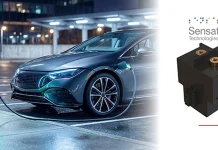Twenty20 Energy, which delivers innovative energy solutions that accelerate the transition to a cleaner energy future, announced that its proprietary Power Island Floating Storage Regasification & Power (“FSRP”) solution will be rolled out in 12 locations across Papua New Guinea (PNG) on behalf of PAWA PNG. The solution features an innovative design that will serve as a model for future nearshore power generation plants in coastal regions worldwide.
“This will assist the PNG government in achieving national energy security and independence while enhancing the lives of the people of PNG via the provision of reliable, cost-effective electricity supply.”
The PAWA PNG project, a joint venture with Dirio Gas & Power and the PNG government, will provide 283MW of less expensive and more reliable electricity supply with significantly lower emissions, as it primarily replaces aging, inefficient diesel-based generation with modern, high efficiency liquid natural gas (LNG) and heat recovery-based generation. The project will also provide additional generation capacity where it is needed most to support economic and social development objectives.
Twenty20 Energy’s proprietary Power Island FSRP consists of three components, all supported by a comprehensive LNG fuel logistics solution:
FSRP power barges, which include power generators and regasification equipment; where power generation from gas turbines and waste energy takes place;
Fuel barges, which includes LNG storage tanks that supply fuel to the gas turbines with 30 days of LNG supply and form the remote fuel bunkering solution; and
Floating piers, which moor the barges in each of the 12 locations with minimal site impact
The power island project will deliver a solution designed and tailored specifically to PNG’s energy requirements. The project represents what Twenty20 Energy and PNG officials called the most efficient and cost-effective solution to harness the country’s domestic LNG supply for powering the country, and supporting the goal of 70 percent electrification by 2030. It is estimated that only 13 percent of Papua New Guinea’s population have access to power, predominantly in the major cities, with electricity in remote locations typically provided by high-polluting, costly, stand-alone diesel generators.
The Twenty20 Energy design calls for floating piers to be built and transported to each of the 12 sites. The power barges and fuel barges will be built and transported to the floating piers, where they will be moored. When in need of additional fuel, the fuel barges will travel to one of the three LNG bulk storage hubs, where they will be filled up and transported back to the floating pier.
The 12 power islands will be located just offshore outside 12 cities, with three of the more strategic locations – Daru, Lae and Lihir – to also host LNG bulk storage facilities. The nine other locations are Manus Island, Buka Town, Kimbe, Alotau, Madang, Rabaul, Wewak, Kiunga and Kikori. Small-scale efficiency sets apart Twenty20’s FSRP; two specific unit sizes with differing outputs – ranging from 8.6 MW to 21.9 MW – will be used in each location. Each power island can be modified according to its growth, so as a location grows, a larger unit can be brought in and the smaller unit would be moved to a new location.






